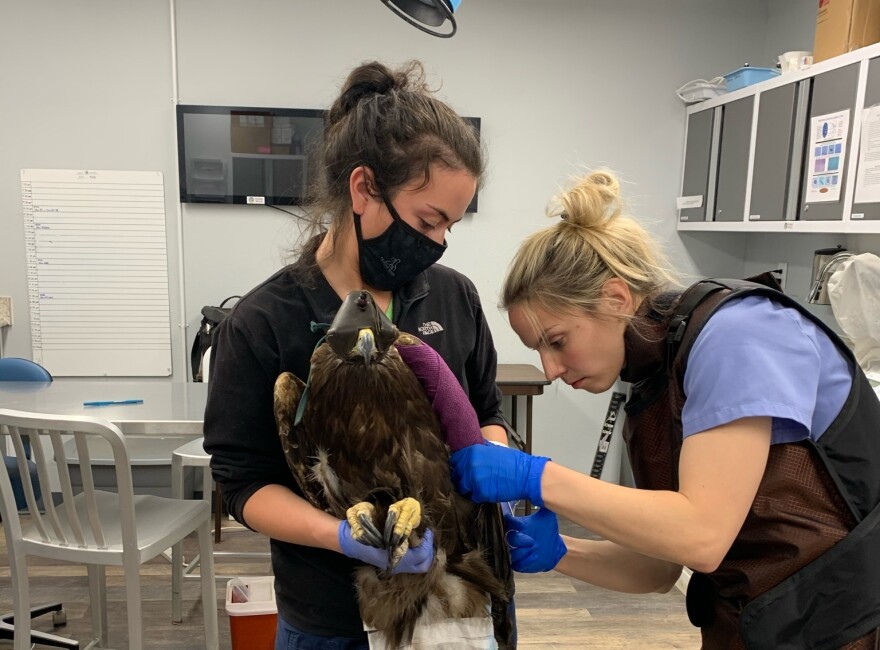Between recent heat waves and wildfires, an Oregon wildlife advocacy group wants people to be aware that more animals may be coming through their neighborhoods. Caution and care are advised.
The fire, smoke, and heat may be driving birds and animals from their habitat, said Sally Compton, of Think Wildlife. The Bend-based non-profit is advising residents not to feed animals, but to place water out to keep them from getting overheated.
"Especially if you are near an area where there’s really bad smoke pollution, or really close to a wildfire. If you have a birdbath refreshing that pretty much on a daily basis.”
Compton urged people not to approach animals who come through, but to call their nearest wildlife hospital if one appears hurt. Many animals carry diseases, ticks, or may attack, especially if injured. She said people who want to help can donate materials or money to their local wildlife hospital as well.
Think Wild also urged Oregonians in or near forested areas to keep their pets indoors, or on a leash for the rest of summer.

Compton said there are two reasons. One is to keep pets safe for when the air is hazardous, such as during a wildfire. The other is to protect nature.
“Right now we’re really in the thick of what we call “baby season”; during late spring pretty much throughout the entire summer, a lot of wildlife from birds to mammals are having their babies," explained Compton.
"And so we really want to encourage you to keep cats and dogs indoors or on a leash, just so they don’t find those babies. So for the safety of both your pet and the wild animal, we just want to prevent that from happening.”
Compton added with recent fires and hot spells, more encounters between pets and wildlife are possible. This can lead to potential conflicts, involving raccoons, skunks, or larger, predatory animals.
Copyright 2021, KLCC.







